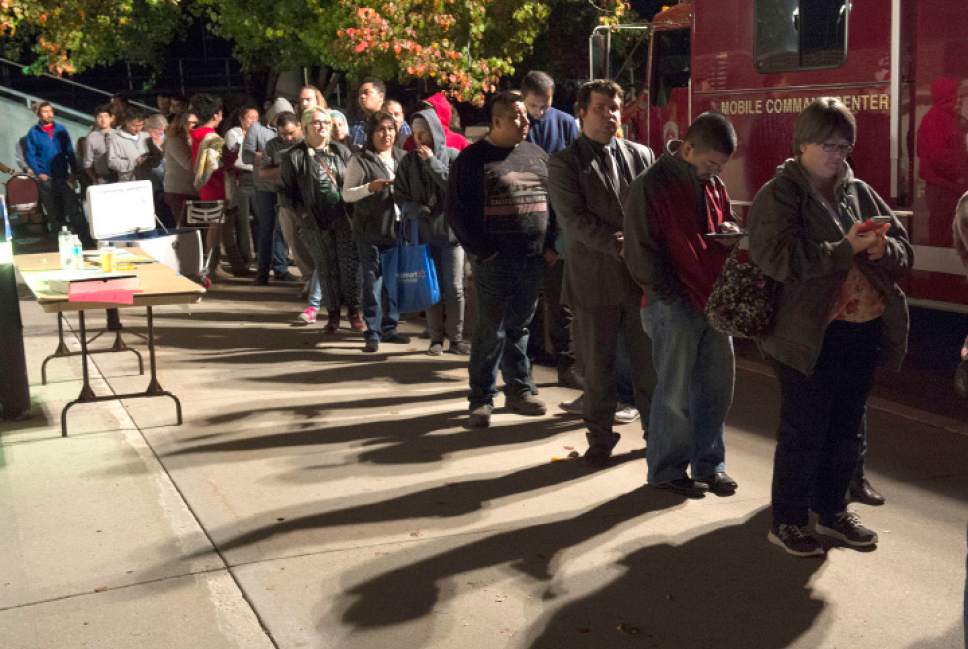This is an archived article that was published on sltrib.com in 2017, and information in the article may be outdated. It is provided only for personal research purposes and may not be reprinted.
After election lines stretched up to four hours long last November in Salt Lake County, a Senate committee unanimously advanced two bills Wednesday designed to help prevent a recurrence.
The Senate Government Operations Committee passed SB116 by Sen. Daniel Thatcher, R-West Valley City, to require county clerks to come up with plans, to be reviewed by the lieutenant governor's election office, to ensure voting lines will be a half-hour long or less.
It also passed SB128 by Sen. Jani Iwamoto, D-Holladay, to allow county clerks to add and advertise more last-minute polling places if needed.
County clerks last year realized many people were choosing not to vote by mail as hoped, and instead wanted to vote in person on Election Day for a variety of reasons. Current laws prevented adding more polling places to handle crowds after initial lists were published.
"In West Valley on Election Day, there were lines by the end of the night that were four hours long," Thatcher said. "There were only two polling locations for a city of over 130,000 people."
He said as he stood in line, "I saw person after person literally give up and go home instead of vote." So while standing in line, he called and opened up a file to start drafting his bill.
It originally called for at least one Election Day polling place for every 10,000 residents in a county. But he amended it Wednesday to allow clerks to come up with their own plans on how to reduce lines, as long as they are kept under 30 minutes long.
Ricky Hatch, Weber County clerk-auditor, who spoke on behalf of clerks statewide, said they have already started a task force to look at what went wrong last year, and fix it. "We felt sick about it as election officials."
He noted something similar happened in 2008 when counties first offered early voting. Lines were extra long because clerks were caught off guard by how popular it would be. Hatch said they formed a similar task force then, and long lines at early voting have not been a problem since.
Hatch said the clerks statewide now plan surveys to talk to voters who chose to skip new voting by mail to understand their reasons, and help to better plan how many in-person polling locations will be needed in the future.



